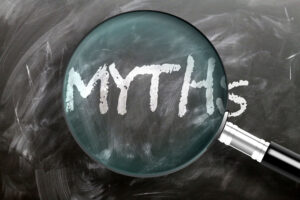Blog

How to Do an Annual Life Review: 7 Questions
Article Summary: Most people don’t do an annual life review. Many don’t know where to begin. Here we guide you through 7 straightforward but powerful questions that will help you take stock and plan for the year ahead—a powerful self-leadership practice. +++ Most people do annual performance reviews at work, but very few people do an annual life review. That’s odd. Why not check in on how things are going in your life? With an annual life review, you can gain clarity about how things are really going in your life, seeing the big picture more clearly. You can spot

How to Be More Present with People
Article Summary: These days, it’s getting harder and harder to be fully present with the people around us. Learn what presence is, why it matters, the barriers to it, and how to practice it. +++ Do your days feel frenzied, frenetic, and frantic instead of peaceful and purposeful? With packed schedules, endless to-do lists, and all the demands of modern life, you may find it hard to be fully present with the people around you. What people really want from you when they’re with you is your presence—your full and undivided attention. Signs of focus and care. When they get

How to Use Anticipation to Boost Your Happiness
Article Summary: Even if your days are heavy with stress, pressure, and uncertainty, the magic of anticipation can lift your spirits as you look ahead toward something exciting. +++ Legendary NFL quarterback Tom Brady won seven Super Bowl titles, five Super Bowl MVP awards, and three league MVP awards. Along the way, he set the records for career passing yards, touchdown passes, and quarterback wins. When somebody asked him which Super Bowl ring was his favorite, he replied: “The next one.” Brady was channeling the power of anticipation—looking forward to future experiences or events that bring you excitement and joy.

Career Tips for Young Professionals
The job market today? It’s tough. If you’re a young professional just starting out, or even a few years in, you know the feeling: the landscape is brutal and the competition is fierce. Consider the following: The unemployment rate for new job market entrants—including recent college graduates and others just beginning their full-time careers—reached a nine-year high this year, according to federal data. Their share of the total unemployed population also climbed to its highest level in decades. Meanwhile, the once-reliable path from college to career may be breaking down. For the first time in modern history, the bachelor’s degree

How to Improve Your Financial Health
Article Summary: Many people struggle financially not only due to economic conditions and the job market but also because managing money can feel complex and overwhelming. They’re unsure of where to begin or what to do. Or they have money hang-ups and counterproductive mindsets that hold them back from achieving financial health. Here we give you the essentials of financial health, including steps you can take to build security, reduce stress, build wealth, and improve your quality of life. +++ Financial health is about more than numbers and money. It’s a cornerstone of your overall quality of life. When your

A Guide to Life-Boosting Activities
Article Summary: Busy professionals and leaders often neglect activities that enrich their lives. How to bring more fun, play, travel, and hobbies into your life. +++ You want to live fully and vibrantly—but between work and family responsibilities, your good intentions slip away. Many modern workers don’t have enough margin in their lives. For some, their identity is too wrapped up in their work. Others are addicted to work: they can’t stop doing it, or even thinking about it. Too often, the lighter and fun parts of life get squeezed out. Big mistake. How Your Activities Can Enrich Your

Are You Serving Enough Every Day?
Article Summary: Many people feel overwhelmed by the busyness of life and suspect they could be serving others much more. This blog offers a quick way to evaluate how much you’re serving in your daily life, along with practical ways to serve more. +++ Every day, you see challenges all around you—not just in the headlines but among your own family, friends, and colleagues. Relationship and health challenges. Stress, loneliness, and loss. Beyond that, you see larger challenges like poverty, crime, and school shootings. It’s easy to feel overwhelmed or too busy to help. But you’re wise to pause and

Rating Your Job: A Work Satisfaction Checkup
Article Summary: Many people spend a huge portion of their lives at work, yet often struggle with bad bosses, unsupportive workplaces, or jobs that leave them drained. This work satisfaction checkup helps you rate your job so you can identify needed changes. If you’re wondering ‘How do I rate my job?’ this checklist can help. +++ You probably spend much of your life at work. The quality of your work life can deeply affect your mental health, growth, happiness, energy, sense of meaning, and overall life satisfaction. “Hundreds of studies have shown that job satisfaction and life satisfaction are positively

Unlock the Magic of Lifelong Learning
Article Summary: You want to keep learning and growing, but you face many demands at work and home. Here we identify the main benefits of lifelong learning and ways to incorporate lifelong learning into your busy schedule. +++ You want to keep learning and growing—but between deadlines, meetings, and family responsibilities, your good intentions fizzle out. This post addresses why ongoing education matters for your life and work and offers many ways you can fit lifelong learning into your schedule. How Education and Learning Can Enrich Every Aspect of Your Life Lifelong learning is a powerful catalyst for success

Check in on Your Friendships: A Quick Checkup
Article Summary: Many people get so busy that they neglect their friendships—only to regret it later. Strong friendships don’t happen by accident. This article offers a quick friendship checkup tool, plus 11 ways to nurture deeper connection with your friends. +++ How are your relationships with your friends? The quality of your friendships can have a big impact on your happiness and quality of life. Strong friendships bring joy, support, and meaning to your life. But friendships aren’t always easy to maintain. You may be busy with work and family obligations, or separated by distance. “…signs suggest that the role

A Quick Family Relationship Checkup
Article Summary: Many people get so busy with work and other obligations that their family relationships end up suffering. Strong family bonds don’t happen by accident. This article gives practical tips to nurture trust, love, and connection with your children, parents, and siblings—plus a quick, family relationship checkup to see how your family is doing. +++ How are your relationships with your family—your children, parents, siblings, or other close relatives? The quality of those relationships can have a big impact on your quality of life. Strong family bonds bring joy, support, and meaning, while strained ones can drain your energy

A Quick Relationship Checkup
Article Summary: Many people struggle to maintain a strong relationship with their spouse or partner. This article offers practical insights to help you strengthen your bond and show up more intentionally—and a quick checkup tool. +++ How is your relationship with your spouse or partner? When you hear the Righteous Brothers sing “You’ve lost that lovin’ feeling,” does it ring true a little? Does it feel “gone, gone, gone”? The quality of your closest relationships can have an enormous impact on your quality of life. A strong partnership can bring joy, support, and meaning, while a strained one can drain

Health and Vitality: Keys to Your Quality of Life
Article Summary: Without health and vitality, even success and good relationships can feel empty, as stress, fatigue, or poor habits drain your joy and resilience. This article guides you through the 12 most important elements of physical and mental well-being—like nutrition, sleep, exercise, mindfulness, and resilience—so you can identify gaps, take practical steps, and build a foundation for thriving in life. +++ You want to live a good life and you want to do well at work, but without health and vitality, everything else suffers. You can achieve success and build healthy relationships, but if your body is run-down or

Elevate Your Life with a Strong Personal Core
Article Summary: We all want to have a good quality of life but too often we don’t know how to get it, especially given the demands we face. Here we identify how you can elevate your quality of life with a strong personal core, a foundation that includes contentment, happiness, meaning, gratitude, and more. +++ In a world full of pressure and constant change, it’s easy to get pulled in a dozen directions—reacting to demands and losing sight of what truly matters. Without a strong personal core, you risk drifting or living by someone else’s script. But when you anchor

The Most Common Myths about Passion and Work
Just follow your passion. Do what you love, and you’ll never work a day in your life. So goes the common advice from scads of college graduation speeches. As if it were so simple. Is it good advice? How can you find your passion anyway? What are the most common myths about passion and work? And what are the realities that bust those myths? It helps to start with what passions are and aren’t. Researchers have defined passions as strong inclinations toward activities you value and like or love, and in which you invest your time and energy. I like

